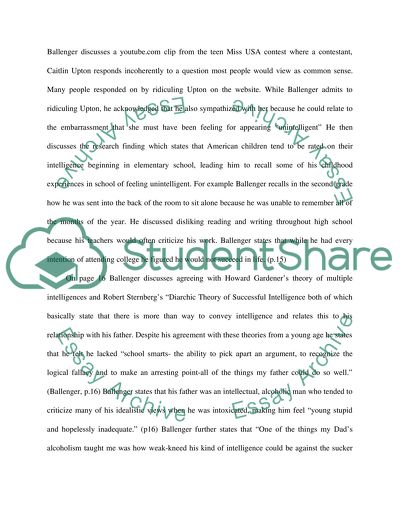Theories of Intelligence by Bruce Ballenger in The Curious Researcher Article Example | Topics and Well Written Essays - 750 words. https://studentshare.org/sociology/1599444-theories-of-intelligence-by-bruce-ballenger-in-the-curious-researcher
Theories of Intelligence by Bruce Ballenger in The Curious Researcher Article Example | Topics and Well Written Essays - 750 Words. https://studentshare.org/sociology/1599444-theories-of-intelligence-by-bruce-ballenger-in-the-curious-researcher.


